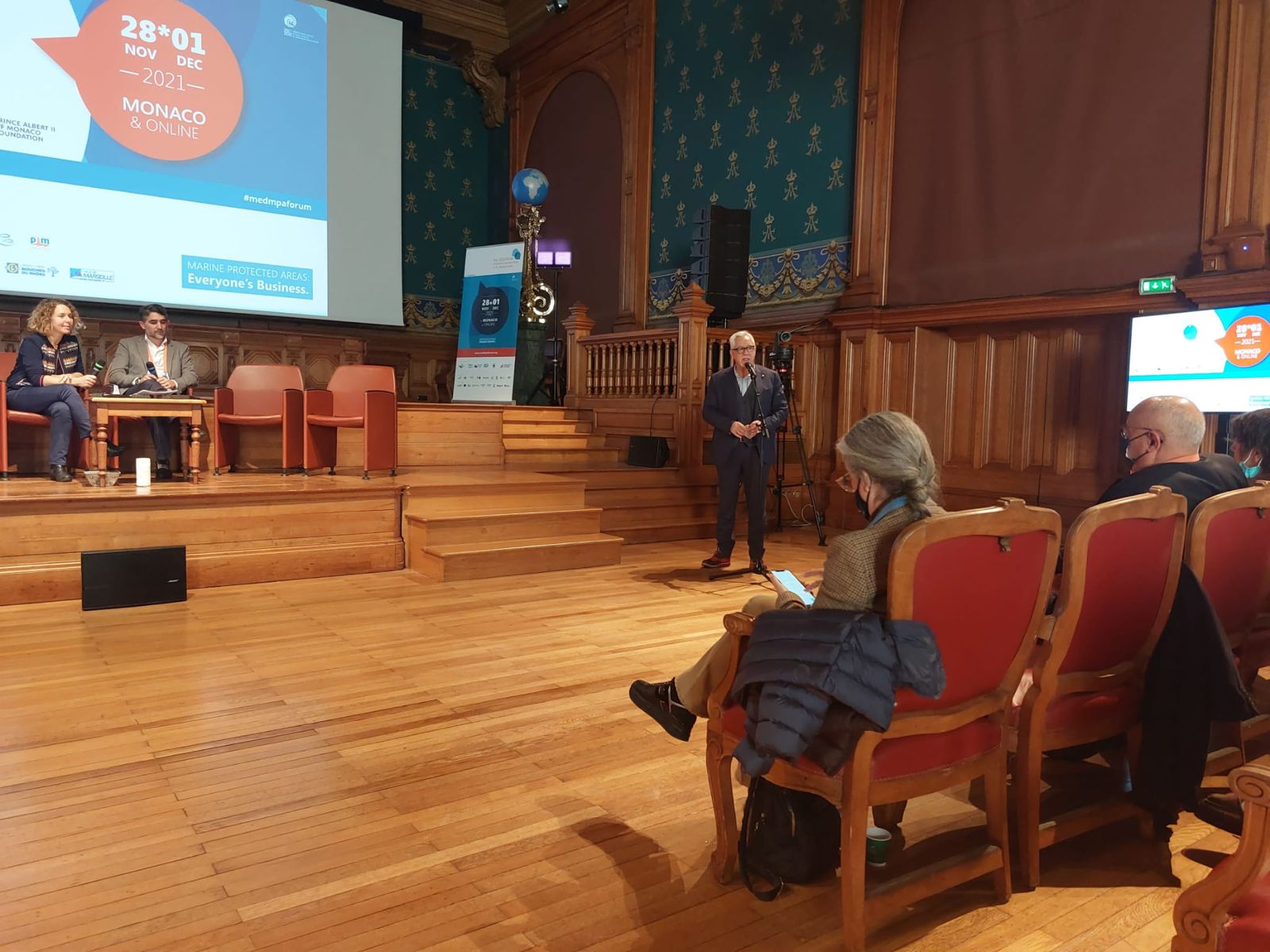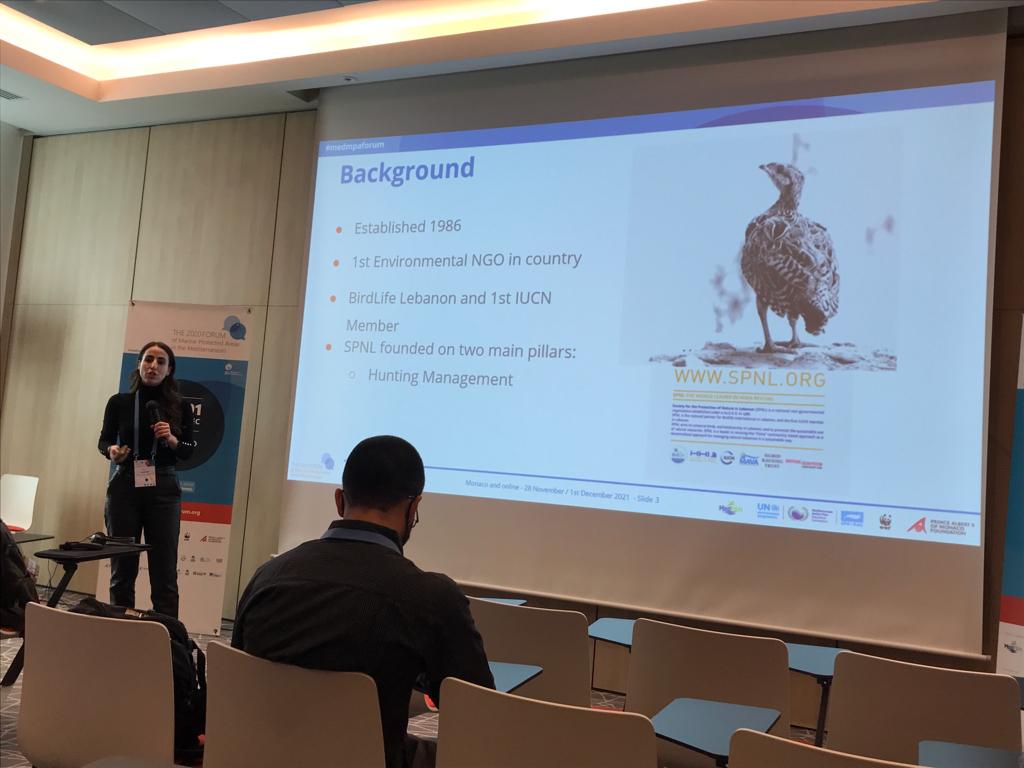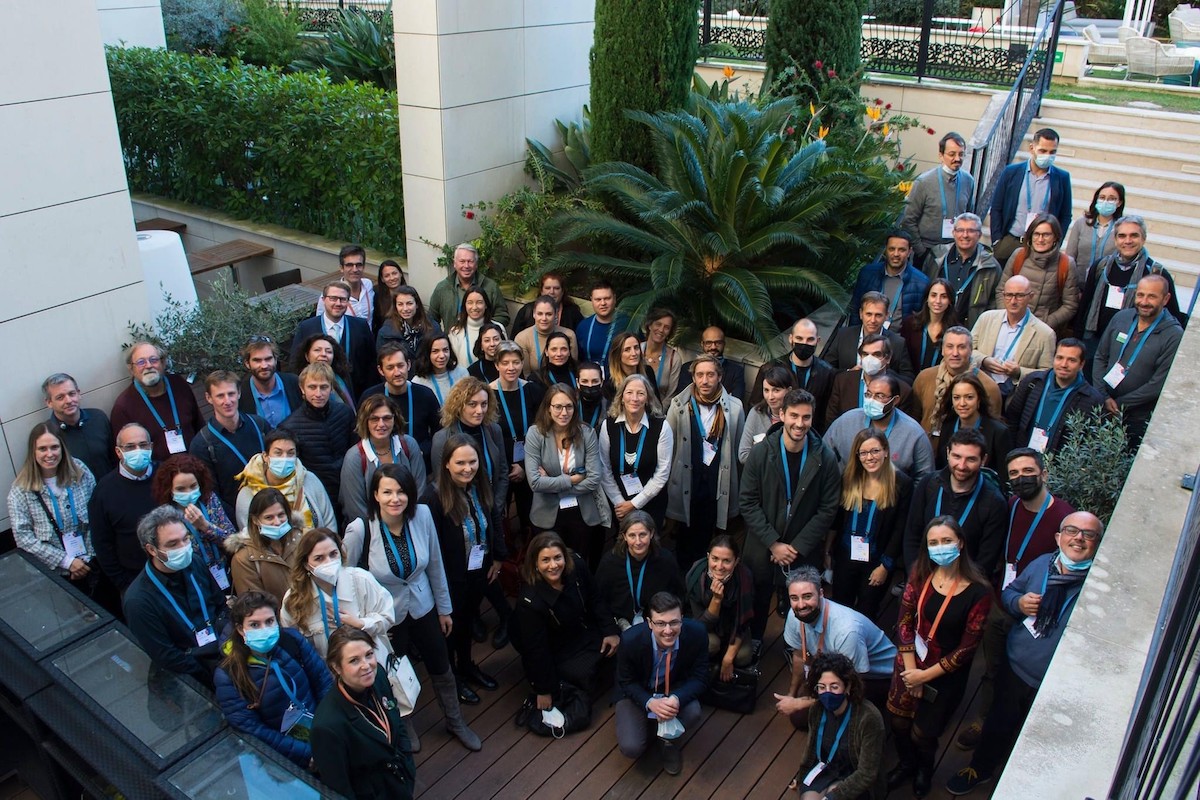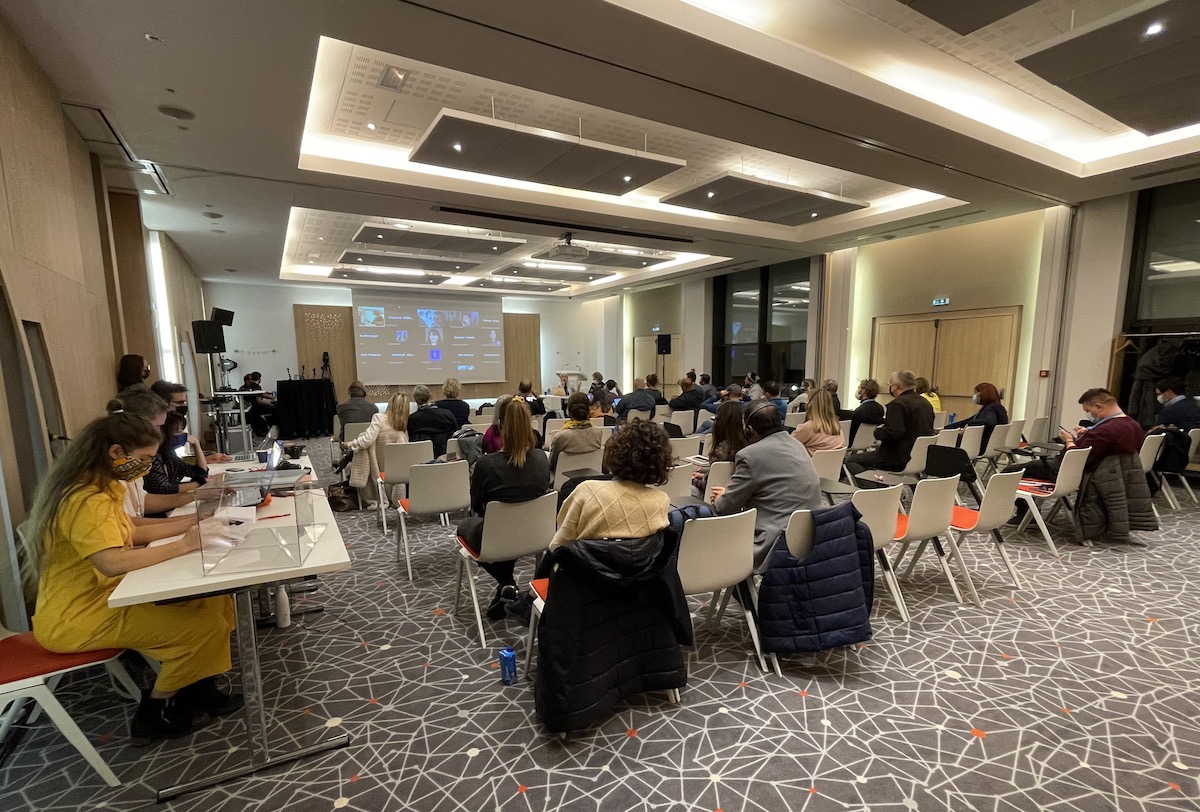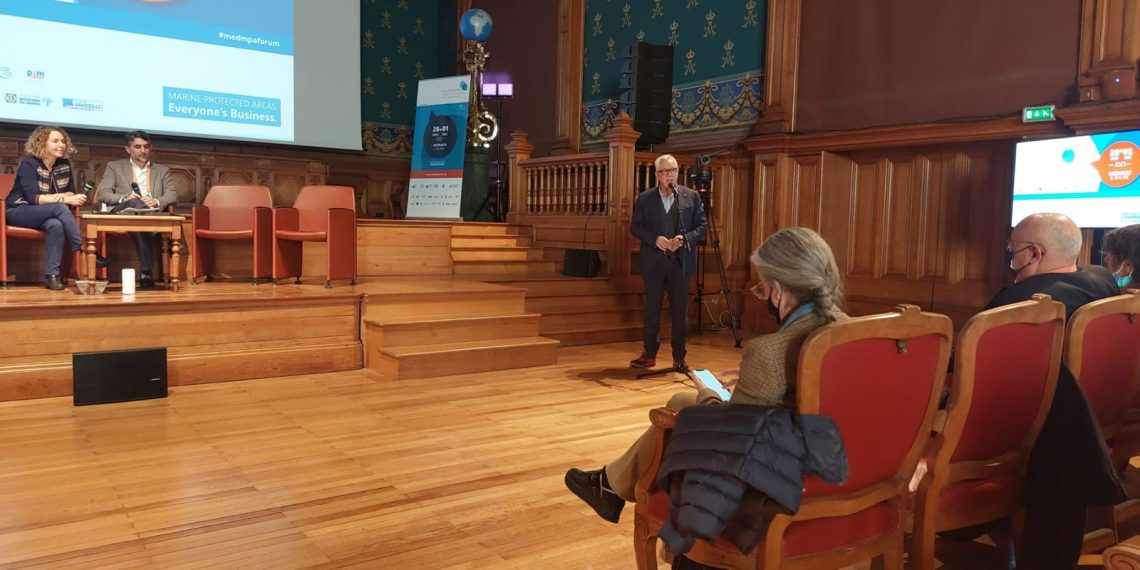
The 3rd Mediterranean MPA Forum is now over and the mobilisation of all actors is stronger than ever
The 2020 Forum of Marine Protected Areas in the Mediterranean took place from 28 November to 1st December 2021 in Monaco and online. This important hybrid event gathered close to 700 participants from 36 countries including over 220 in-person participants in Monaco. Over 40 discussions on 6 different thematic areas were organized to finalize the development process of the Post-2020 Mediterranean Marine Protected Areas Roadmap, which began earlier in October. Hope the forum will be a starting point for a broad mobilization to ensure 30% of the Mediterranean is effectively protected by 2030.
It’s in the majestic conference hall of the Oceanographic Museum of Monaco that the opening plenary took place on 29 November, in the presence of H.S.H. Prince Albert II of Monaco. After welcoming the community in Monaco, the Sovereign recalled the importance of for all actors to collaborate to further develop Marine Protected Areas, a recognised solution to contribute to the preservation of ecosystems and the sustainable development of local communities.
Indeed, the current state of Marine Protected Areas in the Mediterranean shows that 8.33% (209,303 km2) of the Mediterranean Sea is placed under a protection status, almost all of which (97.33%) is located in European Union member country waters. However, many sites are not managed and do not have sufficient regulation and resources to preserve them adequately and generate benefits for the marine environment as well as sustain the livelihoods of local communities. The data supporting these results, gathered in the MAPAMED and MedPAN databases, were presented in the opening plenary. A poster was also released during the Forum. The full report will be published in mid 2022.
In the post-2020 era, the international community is calling to place 30% of the seas under protection by 2030. Considering the high pressures exerted on the Mediterranean marine environment with growing trends, it is crystal clear that willingness to invest in marine conservation needs to be boosted. The Forum goal is to support this effort.
The 40 discussion sessions that took place during the Forum aimed to contribute to the finalisation of the Post-2020 Roadmap for Mediterranean Marine Protected Areas. This operational document aims to be a living and regularly evaluated blueprint that generates the buy-in of all stakeholders needed to be involved in the implementation of its recommendations. The finalisation of the Roadmap will be the start of a wide mobilisation to ensure that 30% of the Mediterranean is effectively protected by 2030.
All the details about the discussion sessions with the presentations can be accessed on the Forum’s website: www.medmpaforum.org (2020/2021 edition, Forum programme). The links to the recording of the sessions will be added as soon as possible.
Recommendations from the discussion sessions will be integrated into the Roadmap. Highlights from these recommendations can be summarised as follows:
- Network of actors (MPA managers, local authorities, prosecutors, small-scale fishers, NGOs, scientists…) are a key ingredient for the implementation of the Roadmap. It allows them to join forces and speak with one voice to address current common challenges and identify actions for change.
- The integration of other area-based conservation measures (OECMs) in the Roadmap is critical for achieving the 30×30 target and special attention needs to be devoted to not dilute the strength of the recommendations developed for MPAs.
- Delivering on the ambitious goals for MPA protection targets both in terms of overall coverage and designation of fully protected areas or no fishing, no take and no go areas require the commitment of all: governments, MPA stakeholders, regional organisations, NGOs, civil society, scientists and donors.
- The effective management of MPAs is an overall goal for the Roadmap. Accurately assessing management effectiveness will be supported with the development of tools taking into account in particular the EU and The MedFund initiatives on this topic.
- The new Roadmap will be finalised early 2022. lt aims to be a living and regularly evaluated document with periodic adjustments made as new circumstances arise. Preliminary ideas for the implementation of the Roadmap and in particular how to engage, follow-up and monitor this process were shared and discussed.
During the closing ceremony of the Forum, key donors expressed their engagement to support Mediterranean MPAs: Olivier WENDEN – Prince Albert II of Monaco Foundation, Romain RENOUX – The MedFund, Paule GROS – MAVA Foundation, Lucile COURTIAL – Beyond Plastic Med initiative, Constance CORBIER-BARTHAUX – French Facility for Global Environment (FFEM), Jérôme PETIT – Pew Bertarelli Ocean Legacy program, Aniol ESTEBAN – Marilles Foundation, Christian SEVERIN – Global Environment Facility (GEF) Secretariat, Vedran NIKOLIC, Nature protection unit, European Commission, Directorate-General for Environment.
The closing ceremony also gave the floor to a number of participants to present the commitment of their organisation to the implementation of the Roadmap. These commitments will be uploaded to the Forum’s website and all Mediterranean stakeholders will be invited to submit additional commitments in the future.
This Post-2020 Roadmap for Mediterranean MPAs is in line with international commitments, and especially the CBD Post-2020 Global Biodiversity Framework under finalisation. The Post-2020 Mediterranean MPA Roadmap (and the Forum process in general) allows the actors at different levels to identify priority actions and coordination mechanisms in order to boost the implementation of international MPA objectives in the Mediterranean, and in particular supports the Post-2020 Regional Strategy for Marine and Coastal Protected Areas (MCPAs) and Other Effective Area-based Conservation Measures (OECMs) of the Barcelona Convention that was adopted last week by the Barcelona Convention COP 22.
Two previous editions of this unique Forum process already took place in relation with the 2020 MPA targets. In 2012 in Antalya, Turkey, where the first Roadmap was developed, and in 2016 in Tangier, Morocco, where the Roadmap for Mediterranean Marine Protected Areas (MPAs) was evaluated and updated to boost the implementation by 2020 of the CBD Aichi Target 11 / Strategic Plan for Biodiversity 2011-2020.
The 2020 Forum of Marine Protected Areas was co-organised by the Network of Marine Protected Areas Managers in the Mediterranean (MedPAN), the Specially Protected Areas Regional Activity Centre (SPA/RAC) of the Barcelona Convention, WWF Mediterranean, and the Prince Albert II of Monaco Foundation, in partnership with many national and international organisations.
